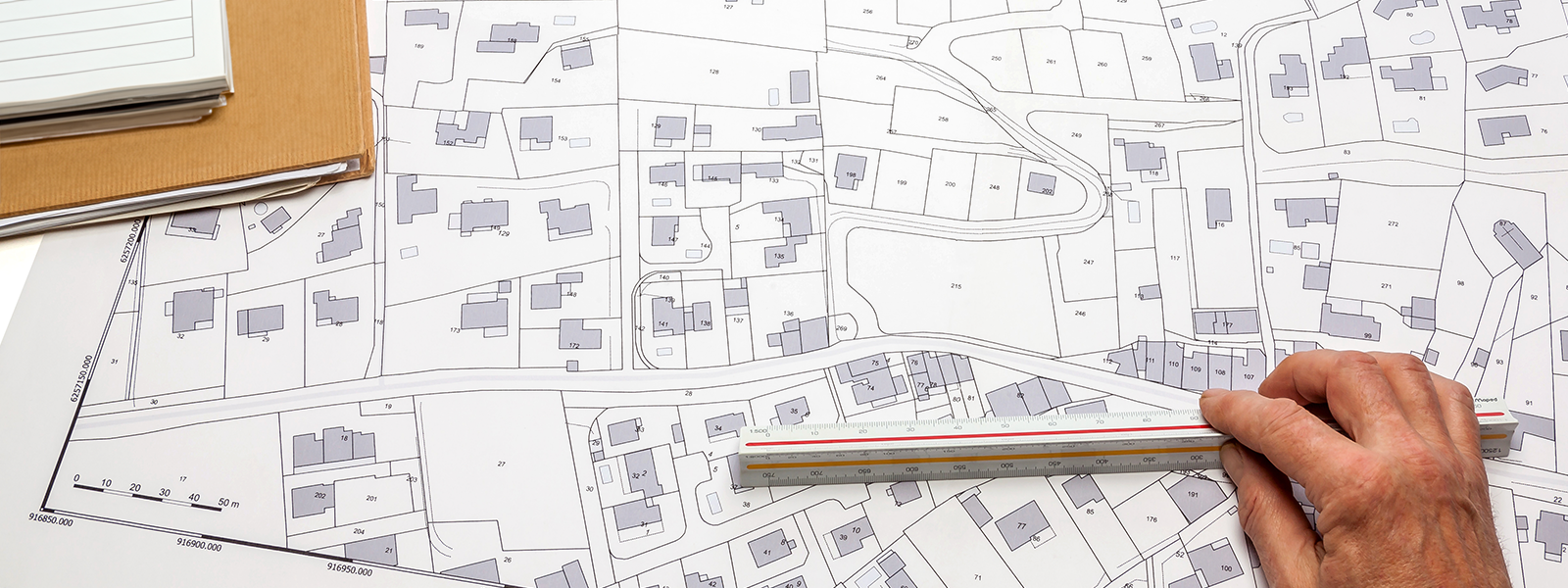What is a Sale Deed? – Meaning, Importance, Rights & More
October 18, 2024 in Property Guide

What is a Sale Deed?
A sale deed, aka a conveyance deed or property sale deed, is a legal document that officially transfers property ownership from the seller to the buyer. It acts as conclusive evidence of the sale and purchase of the property, outlining the terms and conditions of the transaction. The sale deed is typically executed after the buyer and seller agree to the sale price and other related terms.
Importance of a Sale Deed
Legal Validity
: A sale deed is a legally binding document that establishes the legal transfer of ownership. Without a valid sale deed, the ownership of the property may be disputed, leading to potential legal complications.Proof of Ownership
: The sale deed acts as conclusive proof of ownership for the buyer. It serves as a record of the property's rightful owner and can be used as evidence in case of disputes or legal matters.Property Title
: The sale deed contains details about the property's title, including information about the current owner, past owners, and any legal encumbrances. It will ensure more transparency and help buyers to make informed decisions.Avoiding Frauds
: A properly executed sale deed helps prevent fraudulent property transactions. It ensures that the property is sold by the rightful owner and that the transaction is carried out legally.Access to Public Records
: Once registered, the sale deed becomes a part of the public records. This provides an additional layer of security and transparency to the transaction.
Key Elements of a Sale Deed
Parties Involved
: The sale deed includes the names and addresses of both the seller and the buyer. It identifies the transfer of ownership.Property Description
: Detailed information about the property being sold, including its boundaries, dimensions, and address, is provided in the sale deed.Sale Consideration
: The sale price and the mode of payment are mentioned. This section also outlines any advance payment made and the remaining amount.Rights and Liabilities
: The sale deed may include clauses related to the rights and liabilities of both the buyer and the seller, such as the transfer of utility connections and payment of property taxes.Encumbrances
: Any legal encumbrances on the property, such as mortgages or liens, are disclosed in the sale deed. This ensures that the buyer is aware of any existing claims on the property.
=> Read Also:- What is Gift Deed: Meaning, Registration, Charges, Documents, & More
Documents Needed for Sale Deed Registration
When it comes to registering a sale deed, there are a few key documents you'll need to have in order to do so. These documents play a crucial role in the process, ensuring that everything is legal and above board. Here is what you will need:
1. Sale Agreement:
This agreement lays out the terms and conditions of the sale, ensuring that both the buyer and seller are on the same page regarding the transaction.
2. Power of Attorney (if applicable):
In cases where someone is representing you in the property deal, a Power of Attorney document might be needed to formalise their authority.
3. Aadhaar Card:
Your Aadhaar card serves as a primary identification document, helping in your transaction identity.
4. PAN Card:
Your PAN card, with its unique identification number, is essential for financial transactions and tax-related matters.
5. Passport-Size Photographs:
A couple of passport-size photos are needed for identification and record-keeping purposes.
6. Property Tax Receipts:
To confirm that all property taxes are up to date, you'll need copies of property tax receipts.
7. Bank Passbook or Statement:
Proof of your financial ability to make the purchase, such as your bank passbook or statements, might be required.
8. NOC from Society (if applicable):
If the property is part of a society or community, a No Objection Certificate (NOC) from the society might be necessary.
9. Allotment Letter (if applicable):
If the property was allotted to you by a builder or developer, the allotment letter establishes this fact.
Rights and Obligations
Looking for a property for sale in Ahmedabad? Make sure to go through all the rights and obligations involved.– The sale deed entails it all-
Buyer's Rights and Obligations
Ownership
: The buyer gains legal ownership and title to the property upon the execution of a valid sale deed.Possession
: The buyer can take possession of the property as agreed upon in the sale deed.Use and Transfer
: The buyer has the right to use and transfer the property, subject to any local laws and regulations.Payment of Stamp Duty and Registration Charges
: The buyer is obligated to pay the applicable stamp duty and registration charges for the sale deed.
Seller's Rights and Obligations
Sale Price
: The seller has the right to receive the agreed-upon sale price as mentioned in the sale deed.Transfer of Ownership
: The seller must ensure a smooth transfer of ownership by providing accurate information and documentation.Encumbrances
: The seller is obligated to disclose any existing encumbrances or legal disputes related to the property.Handover of Possession
: The seller must hand over possession of the property to the buyer upon the execution of the sale deed.
A sale deed must be registered under the provisions of the Registration Act, 1908, at the local Sub-Registrar's office. The registration process involves paying the requisite stamp duty, which varies based on the property's value and location. Registering the sale deed provides legal validity and helps in establishing ownership rights.
=> Read Also:- RERA Compliance Checklist for Real Estate - A Guide for Home Buyers
Challenges and Considerations
While a sale deed plays a pivotal role in property transactions, there are certain challenges and considerations that both buyers and sellers need to be aware of:
Due Diligence
Buyers must conduct thorough due diligence before finalising a property purchase. This includes verifying the property's title, past ownership records, any legal disputes, and the authenticity of the seller. Sellers, on the other hand, should ensure that they provide accurate and complete information about the property to avoid any legal complications.
Encumbrances and Liabilities
The sale deed should clearly outline any existing encumbrances on the property, such as mortgages, liens, or pending legal cases. Buyers need to be aware of these encumbrances as they might affect their ownership rights and plans for the property.
Tax Implications
Both buyers and sellers need to consider the tax implications of the property transaction. Buyers might have to pay stamp duty, registration charges, and potentially other taxes, depending on local regulations. Sellers should also be aware of any capital gains tax or other taxes that might arise from the sale.
Negotiation of Terms
The terms and conditions mentioned in the sale deed, such as the sale price, payment schedule, possession date, and other clauses, should be thoroughly negotiated and agreed upon by both parties. Any discrepancies or misunderstandings in these terms could lead to disputes later on.
Fraud Prevention
To prevent fraudulent transactions, both buyers and sellers need to engage the services of legal professionals, such as lawyers or property consultants, who can verify the authenticity of the property and the legality of the transaction.
Execution and Registration
The sale deed must be executed on non-judicial stamp paper of the value as per local laws. Once executed, it needs to be registered at the local Sub-Registrar's office. The registration process involves the presence of both parties along with two witnesses to ensure the validity of the transaction.
Inheritance and Succession Planning
In cases where the property is inherited or passed down through succession, the sale deed needs to reflect the legal status of the property transfer. Legal heirs must ensure that all necessary documents and permissions are in place to facilitate a smooth transfer of ownership.
Local Laws and Regulations
Real estate laws and regulations can vary significantly based on the jurisdiction. Both buyers and sellers must have a clear understanding of the local laws and regulations governing property transactions in their area.
Conclusion
Think of the sale deed as a big hug between the buyer and the seller. It's not just about handing over a house or land, it's about shaking hands legally. If you're the buyer, it's proof that the property is yours now. If you're the seller, it shows you've passed on the ownership rights. It's like the end of a story where everyone agrees on what's happening.
Remember, having a good sale deed isn't just about keeping you safe, it's like having a map that guides you smoothly through the process of transferring the property. It's smart to get help from people who know about property rules, like lawyers, so you don't end up in a tricky situation. So, when you're ready to buy or sell, you'll know what to do and how to make sure everything is fair and square.
Looking for dream spaces, not sure where to start?
Leave us a query and our representative will get back to you.
Disclaimer
The Adani Realty expressly disclaims all liability in respect to actions taken or not taken based on any or all the contents of this Blog. The content of this blog is collation of data from various sources and is provided only for information purpose only and Adani Realty does not canvass the particulars, information, brand or any other materials mentioned in the blogs nor does it obtain any monetary benefit from the same.The Adani Realty shall in no circumstance be held liable for any expense, loss or damage including, without limitation, direct, indirect or consequential loss or damage, or any other expense, loss or damage whatsoever arising from the use of data, information, interpretation, judgement or opinion arising out of or in connection with the use of this Blog. Reader is advised to read and apply his/ her intellect and discretion in this regards.

